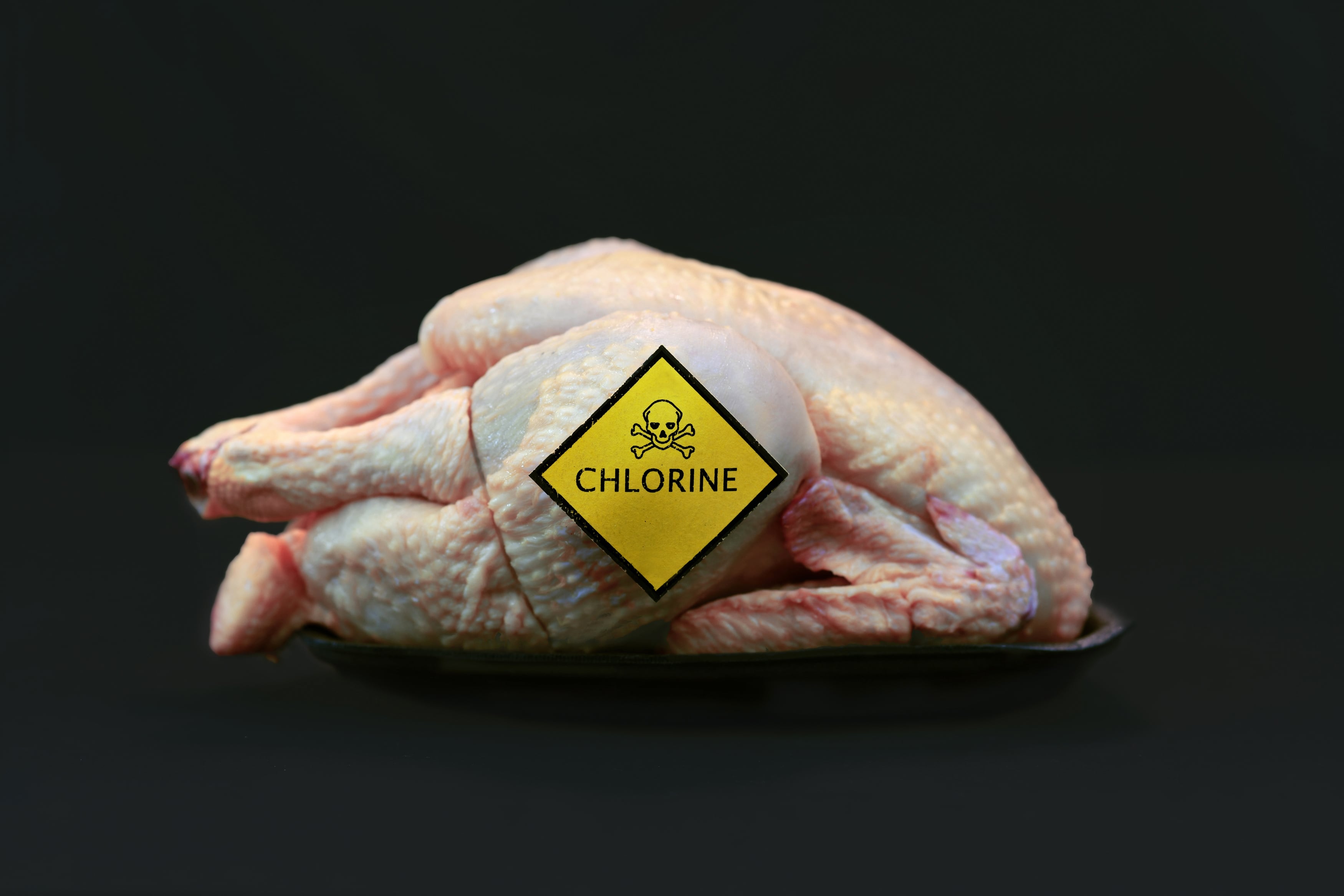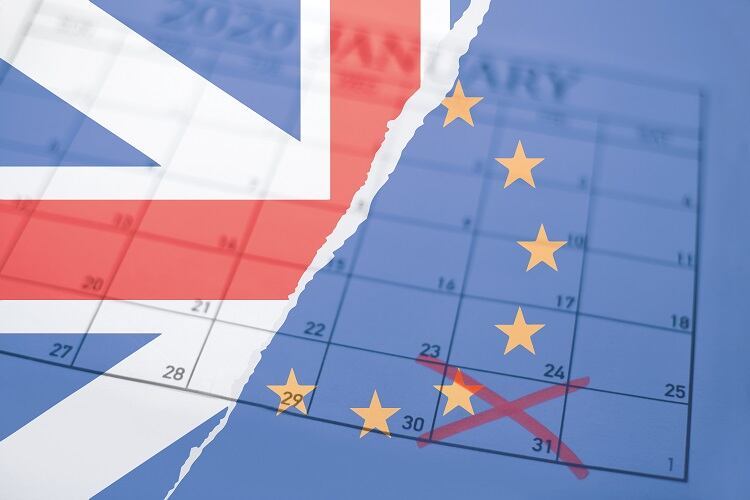In his first speech since the UK left the EU, Johnson set out his commitment to free trade and attacked what he called ‘hysterical fears’ about US food standards.
He told 'America bashers in this country' that 'free trade deals we will be governed by science and not by mumbo-jumbo'.
The UK, for the moment, says it won’t end the current EU ban on chlorinated chicken and hormone-treated beef.
However, when asked about the government’s stance on allowing genetically modified food into the UK after Brexit, a spokesperson for Number 10 pointed to Johnson’s first speech as prime minister last year. At the time, he said: “Let’s liberate the UK’s extraordinary bioscience sector from anti-genetic modification rules. Let’s develop the blight-resistant crops that will feed the world.”
‘We will not accept any diminution in food hygiene or animal welfare standards’
Since leaving the EU, the UK is in an 11-month transition period and will now look to make trade deals with countries around the world.
The US secretary of state, Mike Pompeo, recently warned the UK against using food safety concerns as a ‘ruse’ to protect its farming interests in any future trade deal.
Donald Trump, meanwhile, has has previously said the UK and US could strike a ‘massive’ and ‘lucrative' new trade deal after Brexit.
In London yesterday (3 February) Johnson said he shares the optimism of President Trump. He continued: “There are other issues where I think that I’ve heard a certain amount of [hysteria]… There is a sort of thing about, as if American food was somehow inferior.
“I look at the Americans, they look pretty well nourished to me. And I don’t hear any of these critics of American food coming back from the United States and complaining… So let’s take some of the paranoia out of this argument.
“It goes without saying that… we will not accept any diminution in food hygiene or animal welfare standards.
“I say to all the naïve and juvenile anti-Americans in this country, if there are any – there seem to be some - I say grow up and get a grip.”
‘We know where we want to go, and that is out into the world’
He repeated his vision for a post-Brexit Britain, saying that protectionist policies, such as those embraced by the EU, are letting the air out of the tyres of the world economy. The UK, instead, he said, wants to reach out to the rest of the Commonwealth, which now has some of the fastest growing economies in the world.
“We are not leaving the EU to undermine European standards, we will not engage in any kind of dumping whether commercial, or social, or environmental, and don’t just listen to what I say or what we say, look at what we do.
“We are re-emerging after decades of hibernation as a campaigner for global free trade. We have the opportunity, we have the newly recaptured powers, we know where we want to go, and that is out into the world.”
‘Shoppers rightly expect the same standards’
But FDF's chief executive, Ian Wright, said the UK should carefully assess the financial pros and cons of changing its future trading relationship with the EU.
“The EU market is the largest source of UK food imports and the largest destination for UK food exports. This fact is driven by geography, shelf-life and customer tastes. Introducing friction into those supply chains will have implications for our largest manufacturing sector and for all food and drink consumers.
“It is critical, therefore, that we carefully assess the costs and benefits of any changes to our trading relationship with the EU – and balance them against new opportunities we want to seize for easier food trade with the rest of the world. We also need generous rules of origin that support our food and drink exports success story and recognise the global nature of UK food and drink supply chains.”
He added that the provenance and high quality of UK food and drink is an essential selling point overseas.
“We urge UK and EU negotiators to take a common-sense approach to recognising equivalent food standards so we do not inadvertently raise barriers to trade. We are working closely with the UK Government to identify new trading opportunities and to keep tariffs, quotas, product checks and inspections at the border to the barest minimum.
“The ultimate judge of the success of the forthcoming negotiations will be UK consumers and shoppers, who will rightly expect the same - or better - choice, quality and price for their food and drink.”



